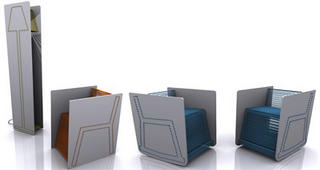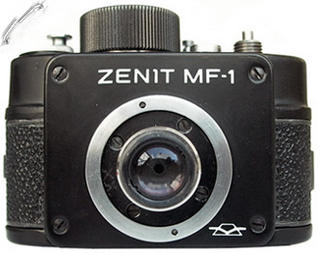Immaterial architecture
have a nice weekend
 |
'round design |  |
...a warm cup of coffee, good music on the background... Now let's have a relaxed, informal conversation about design.
 Speaking of strings, vortex, parallel universes and time travel... Next monday night I'll fly to L.A. to spend monday morning visiting this installation : "Maximilian's Schell" (via designboom) I hope it's close to the Disney Hall which I also want to visit (have a look at this ARCspace page... they have the real Ghery sketches). If you don't like the inconvinience of time travel (10 hours flight) you can still visit "Fotos de arquitectura" They have nice shots of some beautiful buildings like "Casa da Musica" by Koolhaas or Casa Schröder by G. Rietveld. (via dezain.net look there for the photo collection on Eisenman's holocaust memorial) much better than verctorpark!
Speaking of strings, vortex, parallel universes and time travel... Next monday night I'll fly to L.A. to spend monday morning visiting this installation : "Maximilian's Schell" (via designboom) I hope it's close to the Disney Hall which I also want to visit (have a look at this ARCspace page... they have the real Ghery sketches). If you don't like the inconvinience of time travel (10 hours flight) you can still visit "Fotos de arquitectura" They have nice shots of some beautiful buildings like "Casa da Musica" by Koolhaas or Casa Schröder by G. Rietveld. (via dezain.net look there for the photo collection on Eisenman's holocaust memorial) much better than verctorpark!

 Speaking of kitsch. Is there something more kitschig than a plush chair? Yes, there is : an acrylic chair painted with a faux plush finish!
Speaking of kitsch. Is there something more kitschig than a plush chair? Yes, there is : an acrylic chair painted with a faux plush finish! There are many sections on Van Allsburg's site. You'll find videos like the one based on his story "Ben's dream". But what I've found most interesting is this sculpture. Just like his stories, it makes you think about all the possible things that could happen inside and arround that greenhouse: who is the owner? what is he/she like? are there more houses inside (like a matrioshka)? What kind of vegetables or flowers are inside?
There are many sections on Van Allsburg's site. You'll find videos like the one based on his story "Ben's dream". But what I've found most interesting is this sculpture. Just like his stories, it makes you think about all the possible things that could happen inside and arround that greenhouse: who is the owner? what is he/she like? are there more houses inside (like a matrioshka)? What kind of vegetables or flowers are inside? This has been really a bussy week. I just finished the preliminary CAD sketches of the standers and now it's time to arrange bureaucratic issues with IRD, bank, customs, etc, etc... Anyway, someone sent me this interactive flash site to create Pollock-like images. It's not as amusing as the crazy rabbit... but you have to "shake-it" aswell.
This has been really a bussy week. I just finished the preliminary CAD sketches of the standers and now it's time to arrange bureaucratic issues with IRD, bank, customs, etc, etc... Anyway, someone sent me this interactive flash site to create Pollock-like images. It's not as amusing as the crazy rabbit... but you have to "shake-it" aswell. We wanted to book movie tickets for "Howl's Moving Castle" during the film festival next weekend... but we decided not to go yet, and wait until it's on a normal movie theatre at normal prices, and not so crowded with anime fans. Anyway, we still got some discount tickets for Rialto cinemas that we have to use before the end of July.
We wanted to book movie tickets for "Howl's Moving Castle" during the film festival next weekend... but we decided not to go yet, and wait until it's on a normal movie theatre at normal prices, and not so crowded with anime fans. Anyway, we still got some discount tickets for Rialto cinemas that we have to use before the end of July. Mobuzz TV. I enjoyed a lot their news capsule, very professional and nice editorial touch. For those of you with a 3G mobile phone, you can get news feeds like naked news (but no nudity) directly on your cell. If you are a poor fellow like me, you can still watch the videos in english, spanish and french. WOW! They are going to take over RTL soon! Congrats!
Mobuzz TV. I enjoyed a lot their news capsule, very professional and nice editorial touch. For those of you with a 3G mobile phone, you can get news feeds like naked news (but no nudity) directly on your cell. If you are a poor fellow like me, you can still watch the videos in english, spanish and french. WOW! They are going to take over RTL soon! Congrats! Prof. Enrique Mallen from Texas A&M has compiled a great collection of Picasso's paintings. The idea is to make a comprehensive collection of his works. Thanks to the thumbnail views is quite easy to see the evolution of his style and the disctinctive periods.
Prof. Enrique Mallen from Texas A&M has compiled a great collection of Picasso's paintings. The idea is to make a comprehensive collection of his works. Thanks to the thumbnail views is quite easy to see the evolution of his style and the disctinctive periods.




